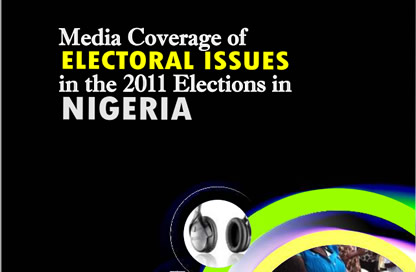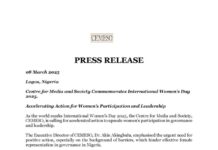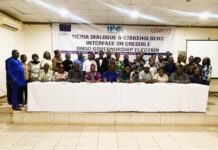By Kanmi Ademiluyi
THE approval by the national working committee of the All Progressive Congress, APC, of the use of direct primaries for the Osun state governorship aspirants represents a welcome reinstatement of the ethos and the building blocks which is at the very heart of the party system.
Pluralism predisposes of course that, there must be a choice of political parties from which the electorate will make a choice. The operations of political parties are therefore fundamental to the health and smooth operations of a democracy. It is unfortunate that the military intervention of the 15, January,1966 by prohibiting the political parties of colonial times and the first republic tore apart the cloak of political socialisation and has subsequently prevented two generations from understanding how political parties are supposed to be structured, operated and driven.
The twists and turns of the military handover to civil rule in reality led to the emergence of hurriedly cobbled together electoral special purpose vehicles which are only now by a natural process of evolution, transforming into real political parties in the sense that would have been incompatible with the initial military oversight. Democratic Centralism is the propelling mechanism upon which the modern party system is based and for over 150 years, much like the separation of powers is a bedrock of democracy.
To be succinct, we might use the definition from Wikipedia – ‘ Democratic centralism is a method of leadership in which political decisions reached by the party through its democratically elected bodies are binding upon all members of the party ‘. Anything else by deduction and indeed in commonsense will be a recipe for indiscipline leading to anarchy and the party ‘s reason for existence. The subordination of the interests of individuals, groups and factional interests to that of the overall collective interests of the party as a whole is therefore the lubricant of the modern political party.
Overall, it leads to greater accountability and provides a mechanism for genuine oversight and if all else fails, the right of recall, the ultimate sanction and corrective mechanism. In Nigeria’s political history over the past 70 years, it has been a perennial issue. It led in the 1940s to the well recorded turbulence in the pioneering anti – colonial Nigeria Youth Movement. In the 1950s,the interpretation of party supremacy in the NCNC led to a faction led by Dr. K.O. Mbadiwe breaking away.
The eventual reconciliation was cemented on the firm acceptance of the efficacy of the principle of democratic centralism by the reuniting factions and tendencies. The defining momentum for the supremacy of democratic centralism in Nigeria is of course, the party convention of the Action Group party in Jos , now the capital of Plateau state in 1962. The issue was straightforward, the necessity of the regional government controlled by the Action Group to be in alignment with the expressed wishes of the membership of the party as interpreted by the elected organs of the party.
The rest is history, too well known to be recounted here. Democratic centralism and the expressed position of the membership of a political party cannot be sensibly translated through the anti – democratic invention of military rule – election by delegates. This mechanism is a reflection of the unitarist mindset of the military; it is inevitably propelled by corruption in which a handful of delegates are up for sale to the highest bidder. Using this framework, the members of the party, those who conscientiously build the party by attending party meetings, sustain it by paying their dues and doing the hard work of mobilization as well as logistics coordination, are frozen out. Inevitably they are marginalised and become in essence extras in someone else’s movie.
This is not the way in which modern political parties are operated. The party activists must control the party and be at center stage. Through this mechanism of common ownership, their concerns and interests will become paramount.The candidates of the party must be chosen by them and must reflect their wishes and desires. Two decades after the exit of military rule and the reinstatement of democracy is more than enough to reinstate the control of the party by the membership. It is unacceptable that this is just happening, it must now become the conventional wisdom as well as the entrenched practice. In many instances in the recent past, the state of Osun has broken the mould, the approval of the national executive of the APC is yet another path breaking move which must be institutionalised. The strength of a democracy is best reflected in the resilience and the entrenchment of a democratic framework in the operations of its constituent political parties.
Through democratically operated political parties, the culture of mass participation and communal ownership becomes entrenched in the polity. Mass participation acts as a bulwark for democracy, this should be of great importance to a country which has gone through the debilitating effects of military rule.
In this way, mass participation through the trajectories of political parties anchored on distinct philosophical positions become the bulwark and a key line of defense against any anti constitutional move. We have to provide solid lines in the defence of our democracy. What is going to happen in Osun state is a reinstatement of the central ethos of mass participation which is so central to the health and vigour of a democracy. A democratic spring is on course in the state of Osun. It should be applauded and as in a lot of areas in which the state has blazed the trail, it is worth emulating.
















